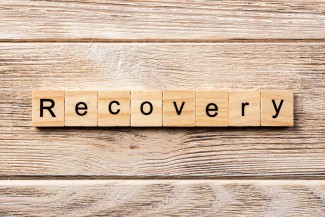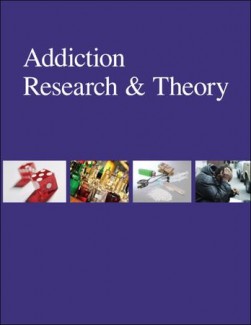Search
Differences in addiction and recovery gains according to gender – gender barriers and specific differences in overall strengths growth
Background
The necessity of a gendered understanding of recovery is becoming increasingly evident. There have been reports of gender disparities in the character and amount of substance use, the paths to and through substance use disorder...
Anomalies in global network connectivity associated with early recovery from alcohol dependence: A network transcranial magnetic stimulation and electroencephalography study
Abstract
Although previous research in alcohol dependent populations identified alterations within local structures of the addiction ‘reward’ circuitry, there is limited research into global features of this network, especially in early...
Overcoming the pains of recovery: The management of negative recovery capital during addiction recovery pathways
Abstract:
Pains experienced as a result of negative recovery capital are often thought to stimulate motivations for positive behavioural change, usually through a ‘rock bottom’ type moment. Whilst recovery capital and barriers to recovery...
Recovery-Oriented Systems of Care: A Perspective on the Past, Present, and Future
ROSC or Recovery Oriented System of Care is a coordinated network of community-based services that is person-centred and builds on the strengths and resilience of individuals, families and communities (1).
This paper provides a...
Chicken or egg: A dual diagnosis narrative
Summary
What is known on the subject?
- Dual diagnosis is a term used to describe persons who have a co-occurring mental health and substance use disorders.
- It is the cause of significant economic burden to health care, justice and...
Strategies Adopted by Addiction Facilities during the Coronavirus Pandemic to Support Treatment for Individuals in Recovery or Struggling with a Substance Use Disorder: A Scoping Review
Mechanisms and mediators of addiction recovery
"Addiction recovery is a complex, dynamic and non-linear process of change on multiple life domains, and in substance use patterns in particular."
In this special issue of Drugs: Education, Prevention and Policy, researchers from around...
Are former heavy drinkers in the UK less likely to identify as being in recovery compared to those in the USA? A pilot test
The Alcoholics Anonymous (AA) movement created the term "in recovery" to express the continuing requirement for vigilance in order to sustain sobriety (which includes abstinence from alcohol intake) and avoid a return to dangerous drinking...
Research led by people who use drugs: centering the expertise of lived experience
Despite a long history of successful, community-led harm reduction programs and rising health inequalities suffered by PWUD, research collaborations between PWUD and researchers remain generally ignored. PWUDs are crucial in identifying...
Mindfulness-Oriented Recovery Enhancement Remediates Hedonic Dysregulation in Opioid Users: Neural and Affective Evidence of Target Engagement
Abstract
Addiction neuroscience models posit that recurrent drug use increases reactivity to drug-related cues and blunts responsiveness to natural rewards, propelling a cycle of hedonic dysregulation that drives addictive behavior. Here...
Natural Recovery by the Liver and Other Organs After Chronic Alcohol Use
ABSTRACT
Chronic, heavy alcohol consumption disrupts normal organ function and causes structural damage in virtually every tissue of the body. Current diagnostic terminology states that a person who drinks alcohol excessively has alcohol...
A Delphi yarn: applying Indigenous knowledges to enhance the cultural utility of SMART Recovery Australia
Background: Mutual support groups are a popular treatment for substance use and other addictive behaviours. However, little is known about the cultural utility of these programmes for Indigenous peoples.
Methods: A three-round Delphi study...
A multi-methods yarn about SMART Recovery: First insights from Australian Aboriginal facilitators and group members
SMART Recovery is a popular mutual support group program. Little is known about its suitability or perceived helpfulness for Indigenous peoples. This study explored the cultural utility of SMART Recovery in an Australian Aboriginal context...
Recovery Community Centers: Characteristics of New Attendees and Longitudinal Investigation of the Predictors and Effects of Participation
Abstract
Objective
Recovery community centers (RCCs) have expanded across the U.S., serving as social “recovery hubs” that increase recovery capital (e.g., employment, housing) by providing resources that clinical care does not provide...
Sex and Gender Effects in Recovery From Alcohol Use Disorder
The current article provides a summary of biopsychosocial gender differences in alcohol use disorder (AUD), then reviews existing literature on gender differences in treatment access, retention, outcomes, and longer-term recovery. Among...
Measuring Capital in Active Addiction and Recovery: The Development of the Strengths and Barriers Recovery Scale (SABRS)
Abstract
Background
The international Life In Recovery (LiR) surveys have provided an important message to the public and policy makers about the reality of change from addiction to recovery, consistently demonstrating both that there are...
Trajectories of psychological distress during recovery from polysubstance use disorder
Abstract
Introduction: Polysubstance use is a prevalent substance use pattern with adverse effects on psychological distress and diminished treatment outcomes. Although polysubstance use often dominates clinical practice, the trajectories...
Predictors of Early Recovery after Treatment for Alcohol Use Disorders in Uganda
Data on treatment for AUD (Alcohol Use Disorders) in developing countries are scarce. This study explores aspects of early recovery and correlates of alcohol use after residential AUD treatment in Uganda. 78 respondents were followed up...
Community Social Deprivation and Availability of Substance Use Treatment and Mutual Aid Recovery Groups
Abstract
Background
The spatial distribution of substance use services impacts their use, with greater access to services associated with more positive outcomes. Findings from availability of primary healthcare indicate service shortages...
Share the Knowledge: ISSUP members can post in the Knowledge Share – Sign in or become a member




